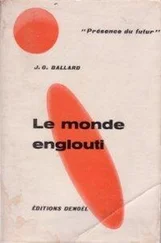James Ballard - Prima Belladonna
Здесь есть возможность читать онлайн «James Ballard - Prima Belladonna» весь текст электронной книги совершенно бесплатно (целиком полную версию без сокращений). В некоторых случаях можно слушать аудио, скачать через торрент в формате fb2 и присутствует краткое содержание. Жанр: Фантастика и фэнтези, на английском языке. Описание произведения, (предисловие) а так же отзывы посетителей доступны на портале библиотеки ЛибКат.
- Название:Prima Belladonna
- Автор:
- Жанр:
- Год:неизвестен
- ISBN:нет данных
- Рейтинг книги:4 / 5. Голосов: 1
-
Избранное:Добавить в избранное
- Отзывы:
-
Ваша оценка:
- 80
- 1
- 2
- 3
- 4
- 5
Prima Belladonna: краткое содержание, описание и аннотация
Предлагаем к чтению аннотацию, описание, краткое содержание или предисловие (зависит от того, что написал сам автор книги «Prima Belladonna»). Если вы не нашли необходимую информацию о книге — напишите в комментариях, мы постараемся отыскать её.
Prima Belladonna — читать онлайн бесплатно полную книгу (весь текст) целиком
Ниже представлен текст книги, разбитый по страницам. Система сохранения места последней прочитанной страницы, позволяет с удобством читать онлайн бесплатно книгу «Prima Belladonna», без необходимости каждый раз заново искать на чём Вы остановились. Поставьте закладку, и сможете в любой момент перейти на страницу, на которой закончили чтение.
Интервал:
Закладка:
Prima Belladonna
by James Graham Ballard
“Barker’s Choro-Flora?” he said. “You’re guilty of overproduction. Come up here. Tony and I have something beautiful to show you.”
I first met Jane Ciracylides during the Recess, that world slump of boredom, lethargy and high summer which carried us all so blissfully through ten unforgettable years, and I suppose that may have had a lot to do with what went on between us. Certainly I can’t believe I could make myself as ridiculous now, but then again, it might have been just Jane herself.
Whatever else they said about her, everyone had to agree she was a beautiful girl, even if her genetic background was a little mixed. The gossips at Vermilion Sands soon decided there was a good deal of mutant in her, because she had a rich patina-golden skin and what looked like insects for eyes, but that didn’t bother either myself or any of my friends, one or two of whom, like Tony Miles and Harry Devine, have never since been quite the same to their wives.
We spent most of our time in those days on the balcony of my apartment off Beach Drive, drinking beer-we always kept a useful supply stacked in the refrigerator of my music shop on the street level-yarning in a desultory way and playing i-Go, a sort of decelerated chess which was popular then. None of the others ever did any work; Harry was an architect and Tony Miles sometimes sold a few ceramics to the tourists, but I usually put a couple of hours in at the shop each morning, getting off the foreign orders and turning the beer.
One particularly hot lazy day I’d just finished wrapping up a delicate soprano mimosa wanted by the Hamburg Oratorio Society when Harry phoned down from the balcony.
When I went up I found them grinning happily like two dogs who had just discovered an interesting tree.
“Well?” I asked. “Where is it?”
Tony tilted his head slightly. “Over there.”
I looked up and down the street, and across the face of the apartment house opposite.
“Careful,” he warned me. “Don’t gape at her.”
I slid into one of the wicker chairs and craned my head round cautiously.
“Fourth floor,” Harry elaborated slowly, out of the side of his mouth. “One left from the balcony opposite. Happy now?”
“Dreaming,” I told him, taking a long slow focus on her. “I wonder what else she can do?”
Harry and Tony sighed thankfully. “Well?” Tony asked.
“She’s out of my league,” I said. “But you two shouldn’t have any trouble. Go over and tell her how much she needs you.”
Harry groaned. “Don’t you realize, this one is poetic, emergent, something straight out of the primal apocalyptic sea. She’s probably divine.”
The woman was strolling around the lounge, rearranging the furniture, wearing almost nothing except a large metallic hat. Even in shadow the sinuous lines of her thighs and shoulders gleamed gold and burning. She was a walking galaxy of light. Vermilion Sands had never seen anything like her.
“The approach has got to be equivocal,” Harry continued, gazing into his beer. “Shy, almost mystical. Nothing urgent or grabbing.”
The woman stooped down to unpack a suitcase and the metal vanes of her hat fluttered over her face. She saw us staring at her, looked around for a moment and lowered the blinds.
We sat back and looked thoughtfully at each other, like three triumvirs deciding how to divide an empire, not saying too much, and one eye watching for any chance of a double-deal.
Five minutes later the singing started.
At first I thought it was one of the azalea trios in trouble with an alkaline pH, but the frequencies were too high. They were almost out of the audible range, a thin tremolo quaver which came out of nowhere and rose up the back of the skull.
Harry and Tony frowned at me.
“Your livestock’s unhappy about something,” Tony told me. “Can you quieten it down?”
“It’s not the plants,” I told him. “Can’t be.”
The sound mounted in intensity, scraping the edges off my occipital bones. I was about to go down to the shop when Harry and Tony leapt out of their chairs and dived back against the wall.
“Steve, look out!” Tony yelled at me. He pointed wildly at the table I was leaning on, picked up a chair and smashed it down on the glass top.
I stood up and brushed the fragments out of my hair.
“What the hell’s the matter?”
Tony was looking down at the tangle of wickerwork tied round the metal struts of the table. Harry came forward and took my arm gingerly.
“That was close. You all right?”
“It’s gone,” Tony said flatly. He looked carefully over the balcony floor and down over the rail into the street.
“What was it?” I asked.
Harry peered at me closely. “Didn’t you see it? It was about three inches from you. Emperor scorpion, big as a lobster.” He sat down weakly on a beer crate. “Must have been a sonic one. The noise has gone now.”
After they’d left I cleared up the mess and had a quiet beer to myself. I could have sworn nothing had got on to the table.
On the balcony opposite, wearing a gown of ionized fibre, the golden woman was watching me.
I found out who she was the next morning. Tony and Harry were down at the beach with their wives, probably enlarging on the scorpion, and I was in the shop tuning up a Khan-Arachnid orchid with the UV lamp. It was a difficult bloom, with a normal full range of twenty-four octaves, but unless it got a lot of exercise it tended to relapse into neurotic minor-key transpositions which were the devil to break. And as the senior bloom in the shop it naturally affected all the others. Invariably when I opened the shop in the mornings, it sounded like a madhouse, but as soon as I’d fed the Arachnid and straightened out one or two pH gradients the rest promptly took their cues from it and dimmed down quietly in their control tanks, two-time, three-four, the multi-tones, all in perfect harmony.
There were only about a dozen true Arachnids in captivity; most of the others were either mutes or grafts from dicot stems, and I was lucky to have mine at all. I’d bought the place five years earlier from an old half-deaf man called Sayers, and the day before he left he moved a lot of rogue stock out to the garbage disposal scoop behind the apartment block. Reclaiming some of the tanks, I’d come across the Arachnid, thriving on a diet of algae and perished rubber tubing.
Why Sayers had wanted to throw it away I had never discovered. Before he came to Vermilion Sands he’d been a curator at the Kew Conservatoire where the first chore-flora had been bred, and had worked under the Director, Dr Mandel. As a young botanist of twenty-five Mandel had discovered the prime Arachnid in the Guiana forest. The orchid took its name from the Khan-Arachnid spider which pollinated the flower, simultaneously laying its own eggs in the fleshy ovule, guided, or as Mandel always insisted, actually mesmerized to it by the vibrations which the orchid’s calyx emitted at pollination time. The first Arachnid orchids beamed out only a few random frequencies, but by cross-breeding and maintaining them artificially at the pollination stage Mandel had produced a strain that spanned a maximum of twenty-four octaves.
Not that he had ever been able to hear them. At the climax of his life’s work Mandel, like Beethoven, was stone deaf, but apparently by merely looking at a blossom he could listen to its music. Strangely though, after he went deaf he never looked at an Arachnid.
That morning I could almost understand why. The orchid was in a vicious mood. First it refused to feed, and I had to coax it along in a fluoraldehyde flush, and then it started going ultra-sonic, which meant complaints from all the dog owners in the area. Finally it tried to fracture the tank by resonating.
Читать дальшеИнтервал:
Закладка:
Похожие книги на «Prima Belladonna»
Представляем Вашему вниманию похожие книги на «Prima Belladonna» списком для выбора. Мы отобрали схожую по названию и смыслу литературу в надежде предоставить читателям больше вариантов отыскать новые, интересные, ещё непрочитанные произведения.
Обсуждение, отзывы о книге «Prima Belladonna» и просто собственные мнения читателей. Оставьте ваши комментарии, напишите, что Вы думаете о произведении, его смысле или главных героях. Укажите что конкретно понравилось, а что нет, и почему Вы так считаете.






